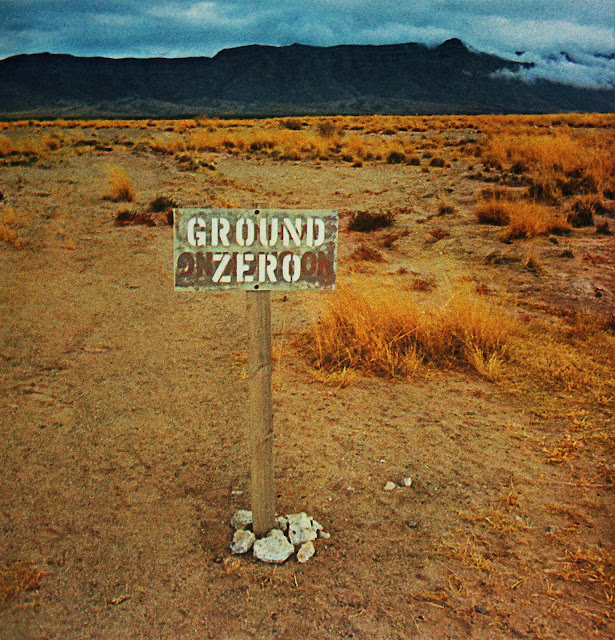 Where did it go -- was it ever? Toxic foundations in original accumulation, the condition of European industrialization. But leave that for now. Let's focus on the transformations since 1945. Shifts in the global social process and its enforcement, within it the functions of the US and the capitalist state as such.
Where did it go -- was it ever? Toxic foundations in original accumulation, the condition of European industrialization. But leave that for now. Let's focus on the transformations since 1945. Shifts in the global social process and its enforcement, within it the functions of the US and the capitalist state as such.Hiroshima: one word that condenses a whole set of such shifts.
"It would be no exaggeration to say that the legacy of the Manhattan Project included what Dwight Eisenhower would later call the 'military-industrial complex,' as well as a powerful national security culture organized around a permanent nexus of profit and secrecy."
"Whether the legacy of Auschwitz will in the end prove worse that that of Hiroshima is doubtful. As Jonathan Schell reminds us, the 'long' or 'real twentieth century' - the last phase of which began on August 6, 1945 - is still 'unfinished.' Hiroshima left the Americans with a new institutional nexus of profit, secrecy and power. But in a vicious circle, the effort to enforce its nuclear monopoly led to an intensification of secrecy and a perpetual culture of national security that quickly corroded civil rights and democratic foundations."
Gene Ray, Terror and the Sublime in Art and Critical Theory, 2005
Now here's a new and more detailed accounting, this time from a conservative constitutionist:
"This book has a basic thesis, that the Bomb altered our subsequent history down to its deepest constitutional roots. It redefined the presidency, as in all respects America's 'Commander in Chief' (a term that took on a new and unconstitutional meaning in this period). It fostered an anxiety of continuing crisis, so that society was pervasively militarized. It redefined the government as a National Security State, with an apparatus of secrecy and executive control."
"All this grew out of the Manhattan Project... The project's secret work, secretly funded at the behest of the President, was a model for the covert activities and overt authority of the government we now experience."
Garry Wills, Bomb Power, 2010
State terror, including genocidal powers held in reserve, has specific functions in global "governance."



'What makes writing for or about the theatre so difficult at the present time is the mixed smell of corpses and prosperity in the air.'
ReplyDeleteBertolt Brecht, 1946